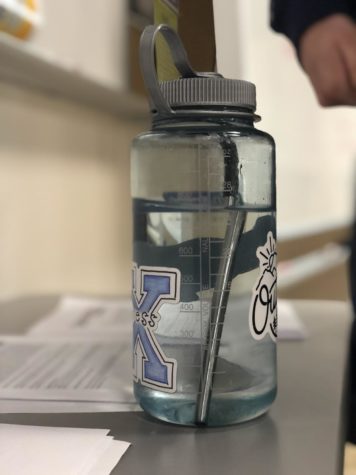Put an end to plastic waste!

Image Courtesy of a Toothcrush article, on Medium.
Picture showing volunteers trying to clear a dam containing plastic bottles and other garbage, near the town of Krichim, Bulgaria.
Each year, over 260 million tons of plastic trash is produced, and about ten percent of it, ends up in the Ocean. Here at Xavier, we are kept motivated to conserve with a club known as the XERO club. Last year, the XERO club made steel reusable straws to stop people from using regular plastic straws which are later thrown away and sometimes end up in the ocean, harming many sea creatures. A mere walk on the beach can give anyone a glimpse at the waste being put into our beautiful ocean, such as empty plastic bottles and plastics bags floating along. But sadly, though we may think that we are able to see all of the plastic pollution, we are not able to see all of the plastic drifting in the sea.
Sophomore Jozlin Tanner said, “The ocean is a very pretty place that we should keep clean because it’s an ecosystem of lives that we should keep alive and not kill.”

Image showing stainless steel straw, courtesy of Senior Helen Innes. Bought from XERO club.
The population of the waste in our ocean is overwhelming and dangerous, especially to the animals living in the ocean. According to Plymouth University, at least 100 million marine mammals are killed each year from plastic pollution. At Xavier, we strive to not only better our community but try to make the world a better place. Another shocking fact is that more than half of the Great Barrier Reef is dying, caused by massive bleaching. Junior Kit Blouin said “I care deeply about our world’s ecosystem, when I found out our Great Barrier Reef is dying I was very disappointed that we let it get this bad. The deterioration on the Great Barrier Reef stands as a symbol as our climate crisis.”
Despite how concerning the issue with plastic can be, there are ways that we can help with the waste in our ocean and the Great Barrier Reef, including the ‘Three R’s method’: Reduce, Reuse and Recycle. Also, it is important to remember that the more this situation and problem is talked about, the more that people are exposed to ways to help the conservation efforts. For this reason alone, it is extremely important to discuss this topic, no matter how hard it may be, in order to find ways in order to help.
Are you anxious about the pollution in our oceans? Attend the next Xero Club meeting! Meetings are announced on the announcements in the morning.



